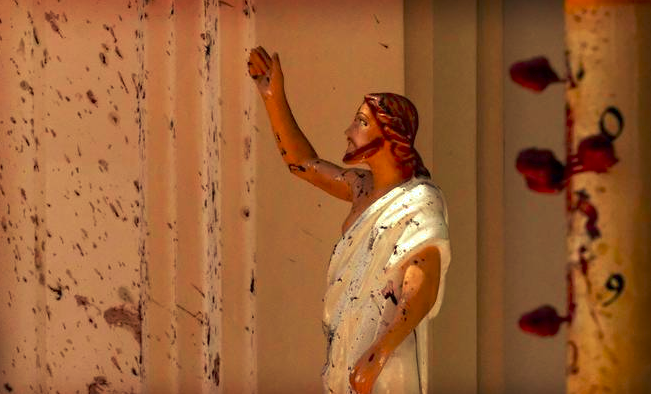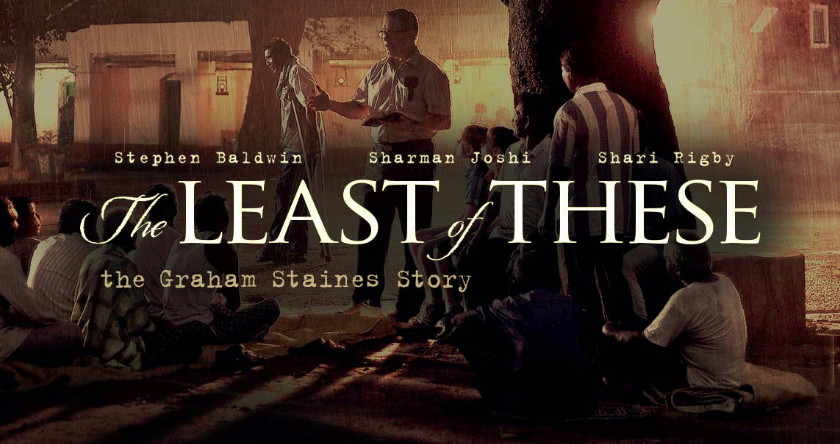April 22, 2019
When The Silence Is As Deafening As the Explosions

It’s a terrible way for it to happen, but with the awful scenes in Colombo overnight, Christian persecution just got its moment in the sun for 2019.
And the manner in which it is being reported for what it is – a terrorist attack aimed predominantly, though not exclusively, at Christians -, makes it pretty clear that when it comes to religious persecution, the mainstream media will report an event, if – and only if – it ticks a number of boxes.
That’s in spite of many a social media post bemoaning the lack of relative coverage of Christian persecution, following the Christchurch mosque massacres.
Yes I think there is an aversion to the idea of Christians being persecuted. This is particularly so in the West. It’s a way that the hardening secular culture gives no inch for Christians in the West to complain they are hard done by. It the Anything But Christianity attitude that Os Guiness talks of.
Having said that I don’t think we should overplay this in global terms. For when it comes to reportage, there are a number of factors that need to take place, all of them aligned with proximity and familiarity, regardless of the faith background of those involved. And these terrible atrocities cover them all. On a day when newspapers in Australia report the weird behaviour of our Prime Minister raising his hands in worship in church, it’s probably to be expected that the secular media has little understanding of how religion works. So why the reportage of this event?
First the issue of familiarity. The attack was in a big city frequented by Westerners. Although it was in Sri Lanka, there are huge Western influences there, and more than a few Westerners died, including two Australians. When it comes to media minutes, such events in global cities are always going to dominate villages and towns we’ve never heard of in countries we’ve never been to.
Second, the event’s media accessibility. It was well documented by social media even as it was happening. It was not reported after the fact, with few, or sketchy details, or when the bodies were already being buried. It happened in real time, and in fact several of the bombings and a number of the deaths, occurred even as the online newspaper reports about the first five or six were being reported.
Third, the ease of category. Simply put, it does not belong in the “too hard-to-categorise basket”. By contrast, think of the the ongoing attacks on Christian tribes in Nigeria. Despite the various comments from Christians in the West that such attacks are underreported when compared with Christchurch, these attacks seem to belong in the category of feudal fighting over arcane land disputes.
Various tribes who for one reason or another happened to be either culturally Christian or Muslim have been at war with each other. There seems to be a lot of tit for tat in this one also. None of us outside of the situation have a clear understanding of the history and factors involved.
Fourth, its timing. This event happened during the height of Christianity’s most important global festival (Christmas is more important to pagans than Christians IMO), and was specifically targeted to destroy as many people as possible who were celebrating that event, in the places where those celebrations occur. That all of our political leaders mentioned as much is significant.
And fifth, surely just how dreadful it was. Hundreds of people lost their lives in a cruel, calculated suicide bombing campaign. The human cost was huge and indiscriminate; men, women, children, locals, Westerners, yes mostly Christian in the churches, but not the hotels, and police officers bravely fighting the terrorists, who are reported to be from a hard line Islamist group.
What awareness this does helpfully raise, even if in such ghastly circumstances, is the fact that global Christianity is primarily experienced by the disenfranchised; the poor parts of society; the Third World; and in countries where Christians are a minority of an often bellicose theocratic government, or have special strictures put upon them for their faith, such as which public roles are open to them and which are not.
Just this past week I received an email from a friend in the UK, updating a recent visit by he and another friend of mine, to one such country. Among the many experiences he recounts, this one stands out:
In the evening we head to a christian colony in a slum area down near the sewers. Many of them work in street or sewer cleaning (can you even imagine?). The church meets there. They live in rough-built unofficial houses. They were in tents but over decades have built other structures. We walk through narrow unlit streets that cars would not be able to drive down. The motorbikes barely get through. We meet with a wonderful church community and their pastor. They are part of “N’s” agape network of some 23 house churches. I speak on being salt and light in our world as we live the kingdom life of the beatitudes. We eat together afterwards and hear stories. One brother who is ex military tells of seeing a bible in a home and asking to read it. It led to faith, eviction from the family home and eventually loss of his job. He is studying at bible school and working as an evangelist among gypsies and other ethic minorities. We pray with people, including prayers for healing. At least one person we know of professed healing.
Persecution for sure, but no persecution complex, just joy in the midst of sorrow.
That’s the reality for millions of Christians around the world. Writing overnight, Giles Fraser, a journalist for the UK’s The Guardian, who also an Anglican rector in London, highlighted this reality. He exposes the fact that, despite some verbal tongue-twisting by many a Western elite, Christianity is the most persecuted religion in the world, and that this fact is seriously under-reported.
Fraser lists some reasons for what he believes is disgraceful under-reportage, including the fact that secularists in the West think Christianity has it coming to them; the overuse of persecution language by Christians to describe what is happening to them in the West; and the fear that to talk about it might be a backdoor to Islamophobia or some such. And Fraser says he understands some of this.
But he then goes on to say:
I understand this – but it’s still not good enough. According to the widely respected Pew report, Christianity remains the world’s most persecuted religion. And the only reason for mentioning this so crassly in terms of league tables is simply that it serves to highlight the deafening silence of our response to it. From North Korea (OK, obviously) to China, and increasingly even in places such as India – all around the world Christians are subject to real and sustained violence for the profession of their faith, the one that we proclaim most insistently today. That life is stronger than death. That love will ultimately triumph over hate.
You can read the whole article here.
A friend of mine has recently written the screenplay for a soon-to-be-released movie about the death of missionary Graeme Staines and his two young sons at the hands of Hindu fundamentalists in India back in 1999. It stars Stephen Baldwin as Staines.

Staines’ widow Gladys continued to work among the poorest of the poor in India until 2004. She received a major humanitarian award from the Indian Government and was awarded the Mother Teresa Memorial International Award for Social Justice. Why? How? What compelled her to stay on working in the country where her husband and sons were slaughtered?
Giles Fraser supplies a great answer, in light of this latest atrocity:
…terrorism can never quench the proclamation of the good news of Easter. At Easter, darkness doesn’t have the last word. That is why people were going to church in Sri Lanka in the first place, to listen again to this message: Christ is risen. Allelujah.
Written by
There is no guarantee that Jesus will return in our desired timeframe. Yet we have no reason to be anxious, because even if the timeframe is not guaranteed, the outcome is! We don’t have to waste energy being anxious; we can put it to better use.
Stephen McAlpine – futureproof
Stay in the know
Receive content updates, new blog articles and upcoming events all to your inbox.


